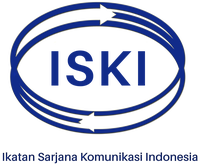Publication Ethics
ProTVF concerns fully on the publication ethic of the whole publication process of the journal and on all received articles. As a quality assurance of a journal, ProTVF assures the professionalism of every party from the journal management, authors, editors, and reviewers by referring to ProTVF Publishing Ethics adopted from COPE's Best Practice Guidelines for Journal Editors.
The publication of an article in a peer-reviewed is an essential building block in the development of a coherent and respected network of knowledge. It is a direct reflection of the quality of the authors’ work and the institutions that support them. Peer-reviewed articles support and embody scientific methods. It is, therefore, important to agree with the standards of expected ethical behavior for all parties involved in the publishing process: the authors, the journal editors, the peer reviewers, the publishers, and the society.
Universitas Padjadjaran as the publisher of ProTVF takes its duties of guardianship over all stages of publishing seriously. We recognize our ethical and other responsibilities in ensuring that advertising, reprint, or other commercial revenue has no impact or influence on editorial decisions. In addition, the Faculty of Communication Science Universitas Padjadjaran and Editorial Board will assist in communications with other journals and/or publishers if necessary.
Duties of Editors
- Publication Decisions: The editor of the ProTVF is responsible for deciding which articles submitted to the journal should be published. The validation of the work and its importance to researchers and readers must always drive the publishing process. The editors may be guided by the policies of the journal's editorial board and constrained by such legal requirements as it shall then be in force for libel, copyright infringement, and plagiarism. The editors may confer with other editors or reviewers in making dis decision.
- Peer review: The editor shall ensure that the peer review process is fair, unbiased, and timely. Research articles must typically be reviewed by at least two external and independent reviewers; where necessary, the editor should seek additional opinions. The editor shall select reviewers with suitable expertise in the relevant field, taking into account the need for appropriate, inclusive, and diverse representation. The editor shall follow best practices in avoiding the selection of fraudulent peer reviewers. The editor shall review all disclosures of potential conflicts of interest and suggestions for self-citation made by reviewers in order to determine whether there is any potential for bias.
- Process Control: The editor must ensure that each manuscript is initially evaluated by the editor for originality, using appropriate software to do so. After passing this test, the manuscript is forwarded to one reviewer or more for double-blind peer review, each of whom will make a recommendation to accept, reject, or modify the manuscript. The review period will be given up to 21 days at least but can last up to a month and a half.
- Fair Play: The editor at any time evaluate manuscripts for their intellectual content regardless of race, gender, sexual orientation, religious belief, ethnic origin, citizenship, or political philosophy of the authors. When nominating potential editorial board members, the editor shall take into account the need for appropriate, inclusive, and diverse representation.
- Confidentiality: The editors and any editorial board members must not disclose any information about a submitted manuscript to anyone other than the corresponding authors, reviewers, potential reviewers, other editorial advisers, and the publisher as appropriate. Unpublished materials disclosed in a submitted manuscript must not be used in an editor's own research without the written consent of the author. Privileged information or ideas obtained through peer review must be kept confidential and not used for personal advantage.
- Disclosure and Conflict of Interest: Any potential editorial conflicts of interest should be declared to the publisher in writing prior to the appointment of the editor, and then updated if and when new conflicts arise. The publisher may publish such declarations in the journal. The editor must not be involved in decisions about papers that s/he has written him/herself or have been written by family members or colleagues or related to products or services in which the editor has an interest. Further, any such submission must be subject to all of the journal’s usual procedures, peer review must be handled independently of the relevant author/editor and their research groups, and there must be a clear statement to this effect on any such paper that is published.
- Vigilance over the Published Record: The editor should work to safeguard the integrity of the published record by reviewing and assessing reported or suspected misconduct (research, publication, reviewer and editorial), in conjunction with the publisher (or society).
Duties of Reviewers
- Contribution to Editorial Decisions: Peer reviewers assist the editors in making editorial decisions, and the editorial communications with the authors may also assist the authors in improving their papers.
- Promptness: Any invited referee who feels unqualified to review the research reported in a manuscript or knows that its prompt review will be impossible should immediately notify the editors and decline the invitation to review so that alternative reviewers can be contacted.
- Confidentiality: Any manuscripts received for review must be treated as confidential documents. They must not be shown to or discussed with others except as authorized by the editors. This applies also to invited reviewers who decline the review invitation.
- Standards of Objectivity: Reviews should be conducted objectively. Personal criticism of the author is inappropriate. Referees should express their views clearly with supporting arguments.
- Disclosure and Conflict of Interest: Peer reviewers should consult the Editor before agreeing to review a paper where they have potential conflicts of interest resulting from competitive, collaborative, or other relationships or connections with any of the authors, companies, or institutions connected to the papers. Privileged information or ideas obtained through peer reviews must be kept confidential and not used for personal interest. Reviewers should not consider manuscripts with conflicts of interest resulting from competition, collaboration, or other relationships or connections with any of the authors, companies, or institutions corresponding to the papers.
- Acknowledgment of Sources: Peer reviewers should identify relevant published works that have not been cited by the authors. Any statement that an observation, derivation, or argument had been previously reported should be accompanied by the relevant citation. Reviewers should also call the editor's attention to any substantial similarity or overlapping manuscript under consideration and any other published papers of which they have personal knowledge.
Duties of Authors
- Reporting standards: Authors of reports of original research should present an accurate account of the work performed and an objective discussion of its significance. Underlying data should be represented accurately in the paper. A paper should contain sufficient details and references to permit others to replicate the work. Fraudulent or knowingly inaccurate statements constituting unethical behavior are unacceptable.
- Data Access and Retention: Authors may be asked to provide the raw data of their study together with the manuscript for editorial review and should be prepared to make the data publicly available if practicable. In any event, authors should ensure accessibility of such data to other competent professionals for at least 10 years after publication (preferably via an institutional or subject-based data repository or other data center), provided that the confidentiality of the participants can be protected and legal rights concerning proprietary data do not preclude their release.
- Originality and Plagiarism: The authors should ensure that they have written entirely original works and that the authors have used the work and/or words of others that are appropriately cited or quoted.
- Multiple, Redundant, or Concurrent Publication: Authors should not in general publish manuscripts describing essentially the same research in more than one journal or primary publication. Submitting the same manuscript to more than one journal concurrently constitutes unethical publishing behavior, and such behavior is unacceptable.
- Acknowledgment of Sources: Proper acknowledgment of the work of others must always be given. Authors should cite publications that have been influential in determining the nature of the reported works.
- Authorship of the Paper: Authorship should be limited to those who have made a significant contribution to the conception, design, execution, or interpretation of the reported study. All those who have made significant contributions should be listed as co-authors. If there are others who have participated in certain substantive aspects of the research project, they shall be acknowledged or listed as contributors. The corresponding authors should ensure that all appropriate co-authors are included in the paper and that all co-authors have seen and approved the final version of the paper and have agreed with the submission for publication.
- Hazards and Human or Animal Subjects: If the work involves chemicals, humans, animals, microbes, procedures, or equipment that have any unusual hazards inherent in their use, the authors must clearly identify these in the manuscript.
- Disclosure and Conflicts of Interest: All authors should disclose in their manuscript any financial or other substantive conflicts of interest that might be construed to influence the results or interpretation of their manuscript. All sources of financial support for the project should be disclosed.
- Fundamental errors in published work: When authors discover a significant error or inaccuracy in his/her own published work, it is the author’s obligation to promptly notify the journal editors or publishers and cooperate with the editors to retract or correct the paper.
Duties of the Publisher
- Handling of unethical publishing behavior: In cases of alleged or proven scientific misconduct, fraudulent publication, or plagiarism, the publisher, in close collaboration with the editors, will take all appropriate measures to clarify the situation and to amend the article in question. This includes the prompt publication of an erratum, clarification, or, in the most severe case, the retraction of the affected work. The publisher, together with the editors, shall take reasonable steps to identify and prevent the publication of papers where research misconduct has occurred, and under no circumstances encourage such misconduct or knowingly allow such misconduct to take place.
- Access to journal content: The publisher is committed to the permanent availability and preservation of scholarly research and ensures accessibility by partnering with organizations and maintaining our own digital archive. For details on ProTVF’s archiving policy, please click here: https://jurnal.unpad.ac.id/protvf/about/editorialPolicies#archiving.
- Safeguard editorial independence: We are committed to ensuring that the potential for advertising, reprint, or other commercial revenue has no impact or influence on editorial decisions.
Read more about some of our journal policies:
- Ethical Oversight
- Allegations of Misconduct
- Author contributions
- Appeals and Complaint Procedures
- Correction, Retraction & Withdrawal
- Data Sharing Policy
- Deposit Policy (Self-archiving)
- Declaration of Competing Interests
- Plagiarism Policy
- Direct Marketing Policy
- Advertising Policy
- Revenue Stream



.jpg)












